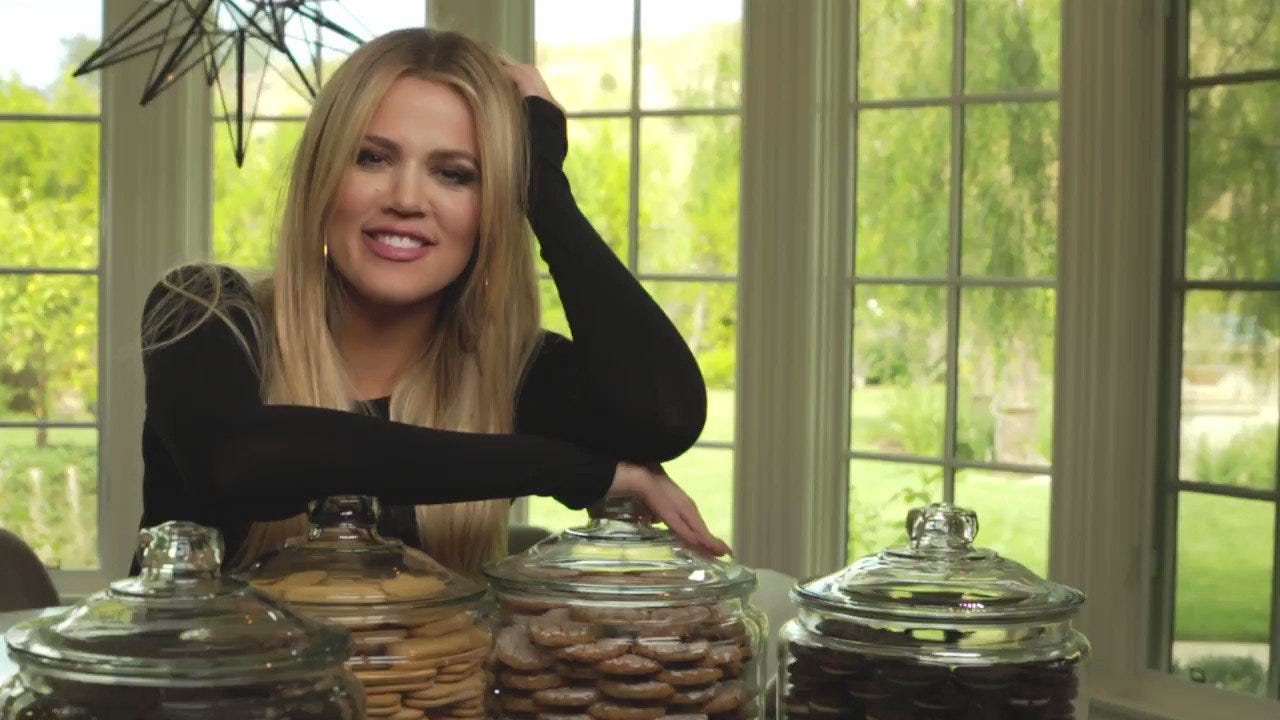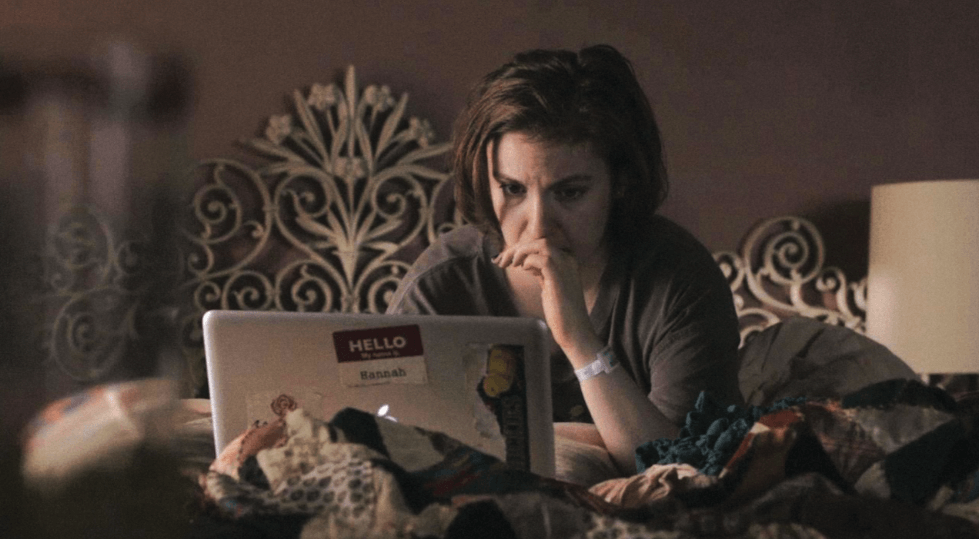When Your Brain Won't Stop: OCD & Anxiety
Our convo with Kimberly Quinlan about OCD, Anxiety and recovery
If you've ever found yourself caught in a loop of worry, checking, or overthinking, you know how exhausting it can be. But here's something that might surprise you: the difference between everyday anxiety and OCD isn't always as clear-cut as we think—and those mental loops you can't seem to break? They might be more significant than you realize.
We recently sat down with Kimberly Quinlan, a licensed therapist, and OCD and anxiety specialist for an incredible conversation. Here’s the cliff notes. There is so much more I didn’t have time to get into here. So be sure to listen the episode for all the details!
Everyone Has Weird Thoughts (But That's Not the Whole Story)
Kimberly shared a story that made me laugh and wince at the same time. She had a client with severe harm obsessions who kept her fears secret from everyone, including her husband. This woman's brain would create intrusive thoughts about harming children with whatever object was nearby—a shovel, a water bottle, anything. One day at the beach, her husband saw a plastic bag blowing across the sand and suddenly blurted out, "Oh my God, I just had a thought that I put that bag over that kid's head."
The wife's response? A mix of relief and dark humor – "You have no idea."
For the husband, it was a weird blip he mentioned and forgot. For someone with OCD? That thought would stick around, multiply, and demand attention. As Kimberly explained, people with OCD and anxiety literally have a "weak brake system" in their brains. Your brain physically cannot pump the brakes on these thoughts. It's not about being weak or dramatic… it's neurobiology.
The Hidden Compulsions Nobody Sees
This is where our conversation got really interesting. We all know about physical compulsions—the hand washing, the checking, the organizing. But mental compulsions? They're sneakier, and they're everywhere.
Kimberly broke it down in a way that I think helps people finally understand what's happening in their minds. Mental compulsions aren't just "thinking too much." They're specific behaviors happening in your mind. Some people do compulsive counting. Others engage in mental neutralization—thinking a positive thought to "undo" a negative one.
There's mental hoarding, where you take a mental photograph of situations to avoid uncertainty later. Like memorizing exactly how the stove knobs look so you don't worry about whether you left them on.
And then there's rumination—the granddaddy of them all. Rumination shows up in almost every mental health condition. You can ruminate about calories if you have an eating disorder, about your worthlessness if you have depression, or about that awkward thing you said in 2007 if you have anxiety.
With OCD, though, it becomes ritualized. You're not just worrying; you're performing mental rituals to try to achieve certainty.
The kicker? These mental compulsions feel like problem-solving. They feel productive. But as Kimberly put it, if you treat your fears like they're real by engaging in these mental gymnastics, you're actually reinforcing them for tomorrow. It's like feeding a monster that only gets hungrier.
Why "Just Stop Thinking About It" Doesn't Work
I used to get so frustrated when people would tell me to "just stop overthinking." Like, wow, why didn't I think of that? What Kimberly emphasized—and what I think is so important for people to hear—is the sheer volume of redirection needed. She describes working with clients who need to redirect their thoughts back to the present moment about 100 times a day. Actually, she said if you have OCD, it's probably more like 1,000 times.
And here's the radical part: every single redirection counts as a win. Not because it makes the thoughts go away, but because you're literally rewiring your brain each time. You're strengthening what she calls your "mindfulness muscle."
But it's not about wrestling your thoughts to the ground. When clients get stuck in rumination, Kimberly asks them something profound: "Are you stuck in your head because you don't want to feel what's in your body?"
Often, we ruminate to avoid feeling grief, guilt, anxiety, or shame. The mental loop feels safer than the physical sensation of the emotion.
As Kimberly beautifully put it: "Recovery is not the absence of intrusive thoughts. It's really your ability to tolerate them and still live according to your values."
Instead of measuring progress by how anxious you feel, she asks clients, "Out of 10, how willing are you to be uncomfortable?"
Because recovery doesn't mean you'll never have another intrusive thought. If someone promises you that, Kimberly says run the other way. Recovery looks different for everyone. Some people's intrusive thoughts become tiny blips. Others still have them but can let them pass without performing compulsions. Many fall somewhere in the middle…the thoughts are less loud, less frequent, but still there. The goal isn't to eliminate the thoughts; it's to change your relationship with them.
Making Peace with Your Brain
As someone who's dealt with anxiety my whole life and experienced those terrifying postpartum intrusive thoughts after having my daughter, this conversation reminded me that managing mental compulsions and rumination isn't about perfection. It's about practice. I used to be so rigid, thinking that having a negative thought made me a bad person. The irony? That rigidity made everything worse.
When you catch yourself deep in a mental loop, you can ask yourself: Am I doing this mental work from a place of anxiety, or from my values? Am I trying to achieve impossible certainty, or can I make space for the maybe?
She even suggested a brilliant technique for when intrusive thoughts are really strong: sing them to the tune of "Happy Birthday." Make them ridiculous. Take away their power. Because sometimes the kindest thing you can do for your brain is to stop taking every thought so seriously.
Want to dive deeper into this conversation? Sam and I covered so much more with Kimberly—from specific OCD subtypes to the sneaky ways we perform mental compulsions without realizing it. She also shared her personal story of developing OCD after PTSD.
[Listen to the full episode here] where we get into all the nuance that a blog post just can't capture. If you've ever wondered whether your worry is "normal" or felt trapped in your own mind, this conversation will feel like finding a roadmap out.
Also check out Kimberly’s podcast- Your Anxiety Toolkit or find her courses at cbtschool.com
See you next week!
Amanda








I felt this whole article...
I was diagnosed with OCD last year, and I'm still learning all the ways it affects me. It's a mix of what they call "Pure O" and "Magical Thinking" and it's my brain constantly telling me I need to think A, B, or C in such a way in order to prevent X, Y, or Z from happening. I've built entirely imaginary situations in my brain in which I alone can control the outcome of things. It's linked heavily to other anxieties I have. But the rumination, the intrusive thoughts, the doing things "just right", the mental compulsions... that's all part of it too, and therapy was the first place in my life I could give voice to what would seem absolutely crazy to someone who doesn't have OCD. Even IN therapy it's hard to say it because I'm aware how it sounds. It takes up so much retail space in my head that I'm still learning just how much brainpower it occupies. Thank you thank you for the several podcasts on this topic. I can't even tell you what a relief it is to learn more and to know I'm not alone.
This was such an interesting episode to listen to. Kimberly was such a phenomenal guest…and her practice is shockingly close to where I live! If you ever get the opportunity to have her on again I’d love to hear her talk more about OCD that’s tied to PTSD/trauma. I understand her point about how engaging in the mental compulsions treats the fear(s) like they’re real and reinforces them, but I’m curious about how that gets navigated when the fear(s) are rooted in a lived experience that the body/mind remembers, and may still relive, very viscerally.
And a quick shout out to Sam for the follow up episode. I saw your IG story this morning about it and I hope that for all the people who feel seen by listening to what you shared, their resonance with later life self discovery finds it’s way to your email/DMs.